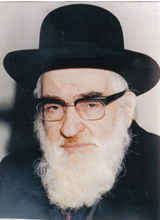Beit Midrash
- Shabbat and Holidays
- The High Holidays
- Yom Kippur
There is opinion in the Talmud that the day of Yom Kippur by itself cleanses a person of past sins. Even though this opinion is not accepted as halacha - true repentance of past sins must accompany the day of Yom Kippur in order for the slate to be wiped clean - it nevertheless highlights the special holy quality of this most wondrous day. The one day in the year that we are granted a new beginning, a time that we close past books and issues and begin our lives anew - that is the special quality of Yom Kippur. How many times in our lives have we thought to ourselves "if I could only start over again, I would be wiser and better." Well, Yom Kippur provides us with that opportunity. However, like all opportunities in life the opportunity must be grasped and taken advantage of. Thus, the day by itself is special and unique but what we do with it depends upon us and our attitudes and behavior on that day and on all the other days of the year that follow it. The fasting and privations of that holy day are meant to afford us the opportunity to change ourselves without having to face the ordinary mundane concerns of life for at least twenty five hours. And that is part of the blessing of that day to those who observe it.
I remember that as a child I noticed in the synagogue in Chicago where my father was the rabbi two men who arrived early in the synagogue on Yom Kippur day and sat down and promptly fell asleep. They slept for most of the day and awoke only at the end of the services to hear the sounding of the final blast of the shofar. I remarked to my father that I did not understand their behavior. He told me in his gentle way: "Listen, my son, they did not violate any of the legal requirements of Yom Kippur. But tragically they did not have a Yom Kippur either. The opportunities that Yom Kippur presents passed them by." As a child I did not quote understand my father’s statement to me. But over time I am beginning to understand the profundity of his simple words. The day of Yom Kippur carries with it many restrictions. These need to be observed and kept. But the day also brings with it myriad opportunities for contemplation, rededication, and self-improvement. Those opportunities have to be snatched and brought within us - within our inner selves when we are able to do so and that time is the day of Yom Kippur itself. The holiness of the day is palpable and it is a time for education and renewal of values. Frittering it away on skateboards will not in any way help the future generation rise to the challenges and problems that it will surely face. This is not a matter of religious dogma. It is just pure common sense.

The Meaning of Yom Kippur
Rabbi Jonathan Blass | Tishrey 9th 5763

Yom Kippur
Rabbi Mishael Dahan, ztvk”l | 5765

Washing on Yom Kippur
Rabbi Yirmiyohu Kaganoff | Tishrei 7 5778





















